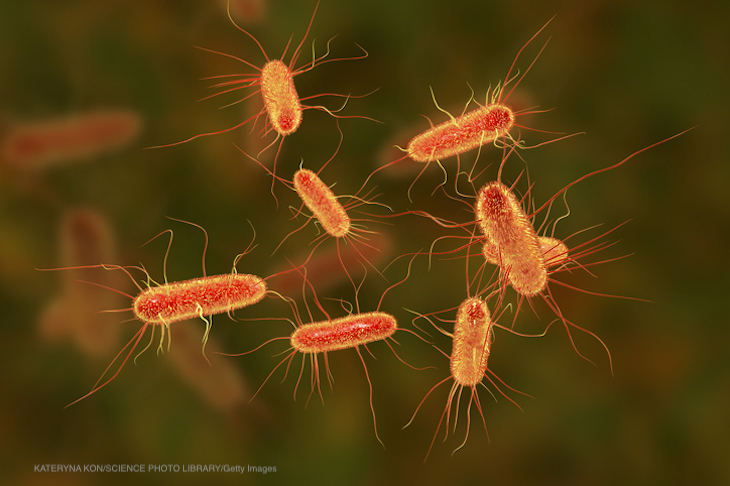E. coli illnesses are increasing in Wyoming, according to that state’s health department, along with cases of norovirus. This information, in a press release from the Wyoming Department of Health (WDH), offered no specifics as to patient ages, hospitalizations, or any hints about possible sources.

Norovirus is likely among the increase in gastrointestinal illnesses, but Matt Peterson, WDH surveillance epidemiologist, said in a statement, “We are specifically seeing increased reports of E. coli across the state recently compared to previous years, which can be particularly concerning in children under 5.”
The symptoms of norovirus and E. coli are similar up to a point, but norovirus is usually a self-limiting illness, and people who contract this infection usually do not seek medical care. Norovirus symptoms include nausea, vomiting, watery diarrhea, stomach cramps, and fatigue, and can lead to dehydration that can be serious. The hallmark symptoms of an E. coli infection are severe and painful abdominal cramps along with bloody diarrhea. Most people who contract this infection do seek medical care.
Peterson added, “When people get ill this way, they most often blame the last thing they ate, but norovirus and bacterial illness can spread through many routes rather than just eating food.” It’s also important to point out that norovirus symptoms usually begin 12 to 48 hours after infection, but symptoms of E. coli start a few days, up to a week, after infection.
The fact that E. coli illnesses are increasing in Wyoming is also concerning because E. coli infections can be deadly. Some patients, particularly children under the age of five, can develop a complication called hemolytic uremic syndrome (HUS). Symptoms of HUS, which is a type of kidney failure, include little or no urine output, lethargy, pale skin, easy bruising, a skin rash, and bleeding from the nose or mouth. Anyone with these symptoms must see a doctor as soon as possible.
In the past, E. coli outbreaks have been associated with ground beef, unpasteurized apple cider, and raw milk, although these outbreaks have also been linked to leafy greens, romaine lettuce, nut butters, alfalfa sprouts, flour, chicken salad, raw nuts, and prepackaged cookie dough. Because just about any food can be contaminated with this pathogen, which is also spread person-to-person, knowing the symptoms of an E. coli infection is important.

If you or a loved one have been sickened with an E. coli infection or HUS, please contact our experienced attorneys for help at 1-888-377-8900 or 612-338-0202.




